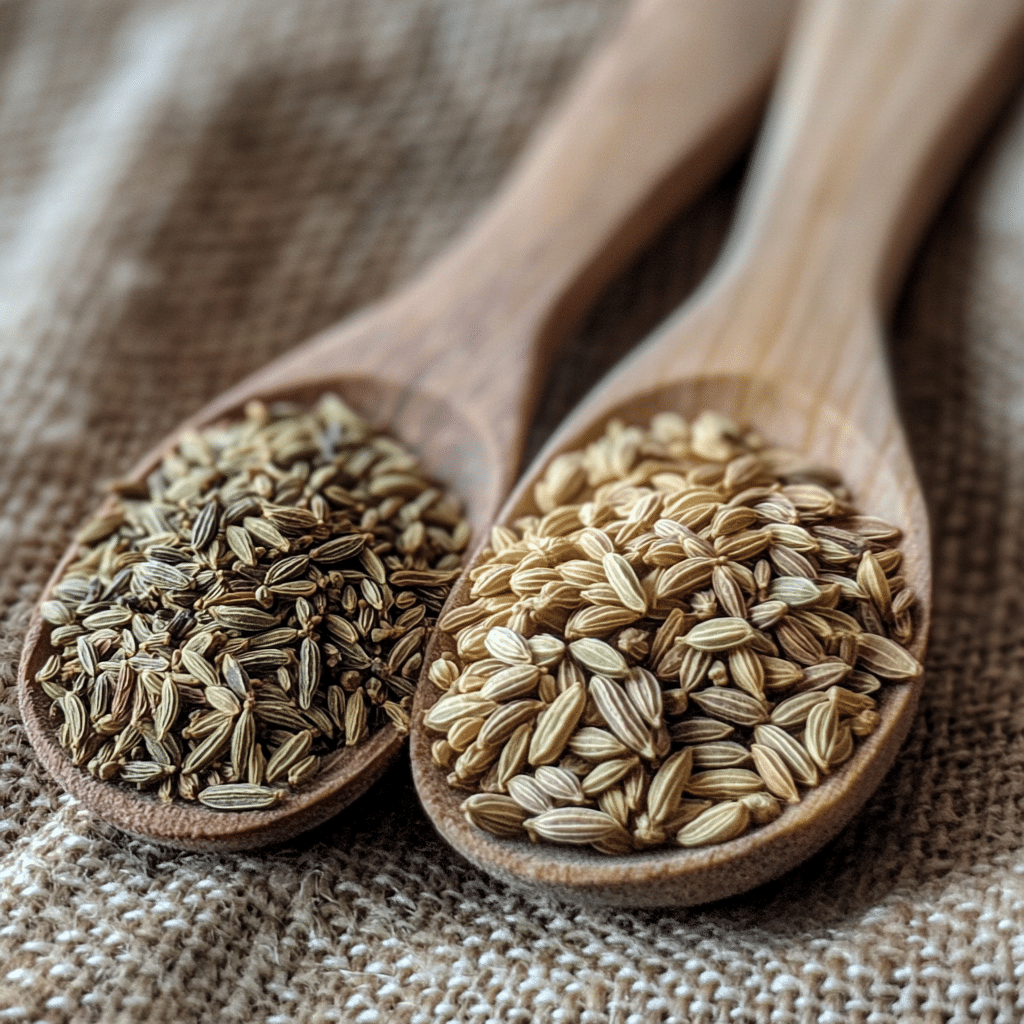If you’re on a post-bariatric surgery journey or simply seeking a natural way to support your weight loss goals, bariatric tea might be exactly what your body needs. This soothing, herbal infusion—often made from cumin, coriander, and fennel seeds—is growing in popularity due to its digestive and metabolic benefits. Packed with natural detox properties and known for aiding in belly fat reduction, bariatric seed tea is a safe, gentle tool for improving gut health and encouraging fat loss. In this guide, we’ll explore everything from its powerful ingredients to how often to drink it, including real testimonials, FAQs, and a DIY recipe.
Table of Contents
ToggleUnderstanding Bariatric Tea for Weight Loss
What is Bariatric Tea and How Is It Made?
Bariatric tea is a type of herbal infusion that is primarily consumed by individuals who’ve undergone bariatric surgery or those who struggle with digestion and slow metabolism. The most common recipe involves steeping a combination of cumin, coriander, and fennel seeds (often abbreviated as CCF) in boiling water. These seeds have been used for centuries in Ayurvedic medicine and are known to work in harmony to stimulate digestion, reduce bloating, and eliminate toxins.
This tea is caffeine-free, all-natural, and incredibly easy to make. With just a teaspoon of each seed and 3–4 cups of water, you can brew a gut-friendly elixir that may reduce your cravings and support your weight loss efforts.
| Ingredient | Health Benefit |
|---|---|
| Cumin | Boosts metabolism, reduces fat deposits |
| Coriander | Detoxifies the liver, balances blood sugar |
| Fennel | Reduces bloating, improves digestion |
Why Bariatric Patients Turn to Herbal Teas for Support
After bariatric surgery, the digestive system undergoes significant changes. Most patients must shift to a low-calorie, low-fat diet that’s easy on the stomach. That’s where bariatric tea comes in—it’s not just hydrating, but also a powerful aid in easing digestion and preventing constipation, which is common after such surgeries.
Even those who haven’t had surgery are turning to bariatric seed teas for their mild diuretic effects, calorie-free composition, and ability to curb sugar cravings. As a result, this tea has carved a niche among health-conscious consumers seeking natural weight loss support.
Looking for inspiration? Try our Keto & Low Carb Recipes for meals that pair well with bariatric tea.
Print
Bariatric Tea: The Complete Guide to Natural Weight Loss Support
5 Stars 4 Stars 3 Stars 2 Stars 1 Star
No reviews
A warm, caffeine-free herbal tea made from cumin, coriander, and fennel seeds designed to support digestion, curb appetite, and gently assist with weight loss—especially helpful for those on a post-bariatric surgery journey.
- Total Time: 15 minutes
- Yield: 2 servings 1x
Ingredients
1 tsp cumin seeds
1 tsp coriander seeds
1 tsp fennel seeds
3–4 cups filtered water
Instructions
1. Bring the water to a boil in a saucepan.
2. Add the cumin, coriander, and fennel seeds to the boiling water.
3. Reduce the heat and simmer the mixture for 5–10 minutes.
4. Turn off the heat and let it steep for an additional 5 minutes.
5. Strain the tea into a mug or glass container.
6. Serve warm, or store in a sealed jar in the refrigerator for up to 4 days.
7. Sip 1–2 cups per day, preferably on an empty stomach or before meals.
Notes
This tea is best consumed warm for optimal digestive benefits.
Start with one cup per day for the first week and increase to two if desired.
Avoid drinking more than three cups a day.
Store leftovers in a glass container in the fridge; reheat gently before drinking.
Do not add sweeteners if storing; instead, add lemon or honey fresh if desired.
Not recommended for pregnant or breastfeeding individuals or those with seed allergies.
- Author: Jessica Lupone!
- Prep Time: 2 minutes
- Cook Time: 10 minutes
- Category: Beverage
- Method: Stovetop
- Cuisine: Ayurvedic
Nutrition
- Serving Size: 1 cup
- Calories: 4
- Sugar: 0g
- Sodium: 4mg
- Fat: 0.1g
- Saturated Fat: 0g
- Unsaturated Fat: 0.1g
- Trans Fat: 0g
- Carbohydrates: 0.6g
- Fiber: 0.3g
- Protein: 0.2g
- Cholesterol: 0mg
Key Ingredients in Bariatric Seed Tea
The Role of Cumin, Coriander, and Fennel Seeds
The secret behind the power of bariatric seed tea lies in its natural ingredients, which work synergistically to heal, detox, and regulate the digestive system. Let’s break down how each seed supports your weight loss journey:
- Cumin Seeds (Jeera): These earthy seeds are rich in antioxidants and iron, making them a go-to for boosting metabolism. Cumin enhances bile production in the liver, helping break down fats quickly. Some studies even suggest cumin may suppress appetite and improve fat-burning capacity.
- Coriander Seeds (Dhaniya): Known for their cooling effects, coriander seeds help reduce water retention and bloating. They’re high in linoleic acid, a natural anti-inflammatory, and also support detoxification by flushing out toxins through urine.
- Fennel Seeds (Saunf): These seeds are loaded with fiber and essential oils that aid in soothing the stomach lining, reducing gas, and improving nutrient absorption. Fennel seeds are especially beneficial after bariatric procedures, as they promote gut healing and relieve cramps or spasms.
When brewed together, these three form what’s commonly called a CCF tea, a traditional Ayurvedic formula used to reset digestion and regulate appetite naturally.
| Seed Type | Function | Weight Loss Role |
|---|---|---|
| Cumin | Bile stimulant | Burns fat faster |
| Coriander | Anti-bloating | Reduces water weight |
| Fennel | Gut soother | Improves digestion |
How These Ingredients Aid in Digestion and Metabolism
After bariatric surgery or during a strict weight loss plan, digestion slows due to reduced stomach capacity and nutrient intake. That’s where bariatric tea helps by reactivating your digestive fire—what Ayurveda calls “Agni.” Here’s how the ingredients work together:
- They stimulate digestive enzymes, which break down food more efficiently and prevent fermentation that leads to bloating or gas.
- Fennel and cumin can relax intestinal muscles, helping to alleviate cramping and constipation.
- Coriander supports liver detox, which improves metabolic rate and enables faster fat-burning.
Together, they build a powerful trifecta that supports your gut and your goals. Discover great ideas like our Zepbound Headache Relief strategies for those dealing with post-weight loss side effects.

Health Benefits of Bariatric Tea
Detoxification and Gut Health Support
One of the biggest advantages of drinking bariatric tea is how it naturally detoxifies the body. Unlike trendy detox drinks filled with additives, bariatric tea works gently and holistically. The unique mix of cumin, coriander, and fennel helps flush out toxins through urine, cleanse the digestive tract, and reset your gut microbiome.
Here’s how it works:
- Coriander seeds act as a natural diuretic, promoting the elimination of water retention and built-up toxins.
- Fennel seeds have antimicrobial properties that reduce harmful bacteria and support the growth of good gut flora.
- Cumin enhances enzyme activity in the liver and pancreas—both crucial for detox and digestion.
After bariatric surgery, patients often deal with issues like constipation or irregular bowel movements. This tea helps restore rhythm, soothe inflammation, and reduce bloating—making it a staple in many post-op diets.
Don’t miss our full breakdown of how nutrients impact digestion in the Nutritional Content of Hot and Sour Soup—a helpful companion read.
Appetite Suppression and Caloric Control
Another powerful benefit of bariatric seed tea is its ability to naturally suppress appetite. Unlike synthetic fat burners or appetite suppressants, this herbal tea stabilizes hunger hormones without messing with your central nervous system.
Here’s why that matters:
- Fennel seeds expand slightly in the stomach, creating a sense of fullness and helping you eat less during meals.
- Cumin and coriander balance blood sugar levels, which can drastically reduce sugar cravings and prevent overeating.
For bariatric patients, managing portion sizes is essential. Drinking a warm cup of this tea before meals may help control caloric intake by curbing unnecessary snacking or binging. It’s also caffeine-free—so no jitters, no crashes, and no dependency.
How to Use Bariatric Tea Effectively
Best Times to Drink Bariatric Seed Tea
To truly harness the power of bariatric tea, timing is everything. Drinking it at the right moments helps optimize digestion, maximize fat burning, and prevent unwanted cravings. Based on expert recommendations and user feedback, here are the ideal times to drink it:
- First Thing in the Morning (Empty Stomach)
Start your day with a warm cup of bariatric tea about 30 minutes before breakfast. This helps jumpstart digestion, cleanse the liver, and flush out toxins that build up overnight. - Before Meals
Drinking it 15–20 minutes before lunch or dinner helps you feel fuller, digest food better, and eat smaller portions naturally. - Before Bed (Optional)
If you’re bloated or constipated, a nighttime cup may calm your gut and promote overnight detox. However, avoid it late if you’re sensitive to fluids before sleep.
Remember to sip slowly—don’t chug it down. Slow sipping gives your body time to respond to the herbal properties.
| Time | Benefit |
|---|---|
| Morning | Activates metabolism, detoxifies liver |
| Before meals | Appetite control, reduces calorie intake |
| Night | Eases digestion, prevents bloating |
Dosage and Frequency for Optimal Results
Consistency matters more than quantity. One of the top questions we get is: “How often should I drink bariatric seed tea for weight loss?” The sweet spot? 1–2 times per day. This provides enough active compounds to support digestion and metabolic function without overwhelming your system.
Here’s a sample schedule to follow:
- Week 1–2: 1 cup daily (morning only)
- Week 3–4: Increase to 2 cups/day (morning + pre-dinner)
- After 1 month: Maintain 1–2 cups/day as needed
It’s not recommended to exceed 3 cups a day. Though it’s natural, overconsumption may cause mild diarrhea or stomach discomfort.
Storing and Preserving Bariatric Tea
Can You Store Bariatric Tea for Later Use?
Absolutely. One of the advantages of bariatric tea is its flexibility—you can make it in batches and store it for later. If your mornings are rushed or you’re following a strict meal plan, preparing a daily or weekly supply makes staying on track much easier.
After brewing, allow the tea to cool to room temperature, then pour it into a glass jar or BPA-free container with a tight lid. This preserves the flavor and keeps the herbal properties intact. Refrigeration is the best method for storage.
You can also pour it into individual mason jars or reusable bottles to take with you to work, the gym, or on the go.
| Storage Method | Shelf Life |
|---|---|
| Refrigerator (sealed glass jar) | 3 to 4 days |
| Room temperature (in thermos, same day use only) | Up to 8 hours |
| Freezer (not recommended) | Alters flavor & potency |
Shelf Life and Refrigeration Tips
When it comes to homemade herbal infusions, freshness matters. While bariatric seed tea contains no preservatives, you can still stretch its usability for up to 3–4 days by following proper storage habits.
Pro Tips to Maximize Shelf Life:
- Always use boiled and filtered water during preparation
- Avoid adding sweeteners like honey or lemon if you’re storing; add them fresh when serving
- Use a dark container or keep in a dark part of the fridge to protect the oils in the seeds from light exposure
Once stored, it’s normal to see slight cloudiness or sediment settle at the bottom. This doesn’t mean it’s spoiled—it’s just the seed particles. Simply shake the container gently before reheating or sipping.
Don’t miss our Zepbound Headache Relief post to explore more natural remedies that support your post-weight loss lifestyle.

Bariatric Tea vs. Other Weight Loss Teas
Comparing with Green Tea, Detox Teas, and Oolong
When it comes to shedding pounds with the help of tea, the market is flooded with options: green tea, detox blends, oolong, matcha, and more. So how does bariatric tea stack up?
Let’s take a closer look:
| Type of Tea | Key Ingredients | Primary Function | Ideal For |
|---|---|---|---|
| Bariatric Tea | Cumin, coriander, fennel | Digestion, detox, hormone balance | Post-surgery support, bloat reduction |
| Green Tea | Camellia sinensis | Thermogenesis, caffeine stimulant | Energy boost, light fat burn |
| Oolong Tea | Oxidized Camellia leaves | Metabolism booster | Intermediate fat loss |
| Detox Tea | Varied blends (senna, hibiscus) | Laxative, temporary water loss | Short-term cleansing |
| Matcha | Stone-ground green tea leaves | High antioxidant, energy jolt | Focus and metabolism boost |
While teas like green and oolong are great for boosting metabolism, bariatric seed tea offers holistic benefits. It supports not just fat burning, but also gut healing, hormone regulation, and post-op comfort—making it more comprehensive for long-term health.
Unlike detox teas, which often rely on laxatives like senna, bariatric tea is gentle on the system. No cramping, no urgency, no dependency.
Why Bariatric-Specific Formulas Work Better
Bariatric patients and those with sensitive stomachs often can’t tolerate caffeine-heavy or acidic teas. Bariatric tea, made from seeds, is caffeine-free, alkaline-forming, and anti-inflammatory. It’s designed to:
- Work in harmony with your body after surgery or extreme dieting
- Improve food absorption, crucial for nutrient retention
- Ease inflammation in the GI tract and promote smoother digestion
- Provide consistent, mild weight loss support—without the crash
Even if you haven’t had weight loss surgery, this tea can help flatten your belly and reset your gut, especially if you’re experiencing bloat, irregularity, or hormone swings.
Side Effects and Precautions
Who Should Avoid Bariatric Tea
While bariatric tea is generally safe for most people—especially those recovering from bariatric surgery or seeking natural weight loss—it’s not suitable for everyone. Just because it’s natural doesn’t mean it’s risk-free.
Here are a few groups who should consult their doctor before consuming:
- Pregnant or breastfeeding women – Some herbs, including fennel, may affect hormone levels or milk supply.
- People with severe gastrointestinal issues – If you suffer from ulcers, IBS, or Crohn’s disease, the seeds’ active oils could irritate the gut lining.
- Those taking diuretics or blood pressure medication – The mild diuretic effect of coriander can interact with prescription drugs, especially water pills.
- Anyone with seed allergies – Rare, but important. If you’re allergic to cumin, fennel, or coriander, this tea should be avoided altogether.
Always start with a small dose (half cup) and monitor how your body reacts.
Common Side Effects and How to Avoid Them
Most users experience little to no negative reactions. However, a few mild symptoms can pop up, especially if you consume the tea too frequently or in concentrated doses:
- Loose stools or mild diarrhea
This usually occurs when you drink more than 3 cups a day or brew the tea too strong. Solution? Dilute it or cut back to 1 cup daily. - Gas or bloating
Ironically, this gut-supporting tea can initially cause gas as your digestion resets. It usually fades within 3–5 days of use. - Drop in blood pressure
Coriander and fennel may mildly reduce blood pressure. If you’re already on BP meds, monitor your levels closely. - Menstrual changes (rare)
Fennel is a known phytoestrogen and may alter menstrual flow in some women.
| Symptom | Cause | Prevention |
|---|---|---|
| Diarrhea | Overconsumption | Limit to 1–2 cups/day |
| Gas | Gut adjustment | Reduce seed quantity temporarily |
| Low BP | Herb-drug interaction | Monitor or skip if on medication |
| Hormone shifts | Fennel content | Consult OB-GYN if concerned |
Conclusion: Is Bariatric Tea Worth Adding to Your Weight Loss Plan?
If you’re looking for a natural, gentle, and affordable way to support your weight loss efforts—especially after bariatric surgery—bariatric tea is a smart choice. It’s rooted in Ayurvedic tradition, easy to make at home, and incredibly versatile.
This tea won’t produce overnight miracles, but it works consistently to improve your digestion, reduce cravings, and flush out toxins—everything your body needs to lose weight the healthy way.
Whether you brew it fresh each morning or prep it for the week, bariatric tea is a reliable, side-effect-free companion on your wellness journey. And if you’re combining it with clean meals, light exercise, and hydration? You’re on the right track.
For more recipes Follow me in our Social media
Facebook: https://www.facebook.com/profile.php?id=61573913076847
Pinterest: https://www.pinterest.com/momandgrandmacooks/
Medium: https://medium.com/@momandgrandmacooks
Frequently Asked Questions About Bariatric Tea
What are the benefits of bariatric seed tea?
Bariatric seed tea offers a range of benefits including improved digestion, reduced bloating, detoxification, appetite suppression, and mild fat-burning support. It’s especially beneficial for post-bariatric surgery patients due to its gentle, caffeine-free formulation. The tea also helps balance gut bacteria and reduce sugar cravings, promoting a healthier, sustainable weight loss routine.
How often should I drink bariatric seed tea for weight loss?
For best results, drink 1–2 cups per day, ideally on an empty stomach in the morning and before meals. Start with one cup daily for the first week and increase gradually if needed. Avoid drinking more than three cups per day to prevent potential digestive discomfort.
Can I store this tea and drink it later?
Yes, you can prepare bariatric tea in advance and store it in the refrigerator for up to 3–4 days. Use a sealed glass container and keep it away from light to preserve its active compounds. Be sure to reheat gently or enjoy it chilled.
Will it help me lose belly fat?
Yes, indirectly. While bariatric tea doesn’t target fat directly, it improves digestion, reduces bloating, and curbs appetite—all of which contribute to belly fat reduction. Its natural ingredients help regulate hormones and improve metabolism, making it easier to lose stubborn fat over time.








